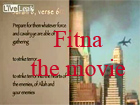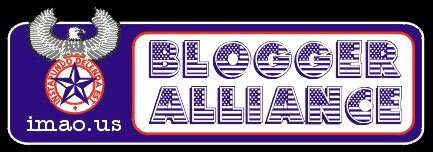« Is Islam Misrepresented? Perhaps Not! | Main | Iran Tells IAEA Chief El-Baradei To Fire Inspector 'That Knew Too Much' - And He Does! (The IAEA Tried To Prevent Publication Of This Article) »
July 8, 2006
On "The Declaration of Freedom of Humanity"
On "The Declaration of Freedom of Humanity"
On "The Declaration of Freedom of Humanity" which I also posted on Dean's World, Jos Metadi made this comment:
"Endowed by nature with certain unalienable Rights"? Sorry, nature endows no rights other than might makes right, the right to do whatever someone else can't stop you from doing. Rights are either a creation of a sovereign God, or the creation of a group/civilization and are alienable dependent upon inclusion in that group and acceptance of its social order.
Rather than putting this in terms of a "creator," which the Declaration of Independence does, and which makes this argument specific to certain religions and beliefs (I for one do not accept the idea of a creator), I prefer to make this Declaration as general as possible. The idea of natural rights is basic to freedom. No one is born a monarch, a dictator, or a ruler. True, by the luck of the draw, some people are born with certain capabilities, as members of the best of families, and in cultures favorable to their talents. What they achieve as adults, however, is not ordained, and in that sense, they must be free to make the best of what they are.
The idea that " rights are . . . the creation of a group/civilization and are alienable dependent upon inclusion in that group and acceptance of its social order" is that we have no rights outside of our group or our culture. In no way would I agree that because people are born in North Korea, Saudi Arabia, or Mexico, they have no rights outside of those cultures and nations. The Declaration of Freedom makes natural rights universal.
Now, how do I prove this? No more than anyone can prove that a creator gave us our rights. Natural rights are a necessary hypothesis of freedom. On accepting such a hypothesis, consider Kant's argument for freedom as opposed to determinism. In his Critique of Pure Reason, he establishes what is (the phenomenal world of natural laws) and our subjugation to it. He then establishes what it is reasonable to suppose is possible (of freedom as a transcendental idea), and finally he argues that for a certain end (for there to be moral laws) we must hypothesize that what is possible is so. That is, he takes an "as if" approach to reality, showing alternative perspectives and then arguing that our ends dictate accepting a particular perspective as though it were true, even though we can never know whether it really is.
Others, such as William James ("The Dilemma of Determinism," in Essays in Pragmatism, 1969) and Jerome Frank (Fate and Freedom, 1945), have taken a similar approach. They argue that freedom and determinism are in effect both postulates about humanity, and we have no absolute basis for accepting either. Let us, therefore, accept freedom as the more pragmatically justified postulate, and affirm freedom thereby. Because of the contribution such acceptance makes to our dignity and worth, and to our sense of responsibility and creativity, the onus must be on the shoulders of those who deny freedom to prove their case. Otherwise, let us presuppose freedom.
These are my arguments for the natural right to be free.
Robert Modean was unhappy with my saying "men and Women" instead of "Men," as in the Declaration of Independence of 1776. He says:
Men and Women, yes, it seems such a minor quibble and I understand that there are many countries where women are oppressed, but the term Men isn't just the plural of Man, it's also a gender neutral term that identifies a human being regardless of sex. Not only does "Men and Women" ruin the flow of the statement, it's needlessly wordy and honestly IMO it's a piece of PC piffle not worthy of a great declaration. If not Men, why not just say "...that Mankind is created equal, that people are endowed..." it's the same thing and it isn't nearly as clunky."
At the time the Declaration of Independence was written, women were second and third class citizens everywhere. In the United States they did not even have the vote until 155 years after the Declaration. I believe that the cosigners of the Declaration really thought in terms of men--which is to say males. So, I wanted to make it clear, since even today women as a gender still are deprived of rights in many parts of the world, that the Declaration of Freedom applies to women as well as men.
Posted by Rudy at July 8, 2006 1:31 PM


